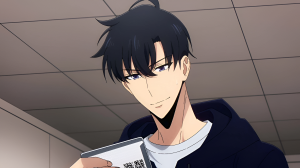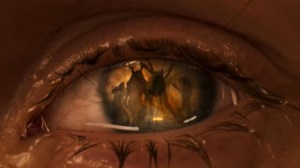During its tenure, Dragon Ball has done a lot. The series is well over 30 years old now, and in that time, Son Goku has shown up competition time and again. From his early years to his latest romps, Goku doesn’t known how to back down from a fight. And thanks to a recent interview, the shonen fandom learned Dragon Ball did play a role in ending one of Weekly Shonen Jump‘s biggest hits.
Videos by ComicBook.com
Now let’s be clear. Dragon Ball was not the only reason Shonen Jump brought Kinnikuman to an end. There was a lot of drama going on behind the scenes, and as it just so happened, Dragon Ball put a final nail in the coffin for Kinnikuman co-creator Takashi Shimada.
Recently, the artist broke down the entire saga while speaking with Weekly Osakanichinichi overseas. The newspaper wanted to dig into Shimada’s history as a manga creator, and of course, that means Kinnikuman would be put in the spotlight. It was there Shimada broke down the three main reasons the original Kinnikuman series ended at Shonen Jump.
The first reason falls to Shimada as the artist was experiencing chronic back pain. The second reason fell to mounting fan pressure. And finally, reason number three came courtesy of Dragon Ball and its mounting success.
“You can’t take a break from Weekly Shonen Jump serialization. If you take a break, you will be fired immediately,” Shimada explained, reflecting on the tough decision he made with co-creator Yoshinori Nakai to put Kinnikuman on a brief hiatus. The break did wonders for the artists, but during its absence, Kinnikuman found itself position on the Shonen Jump chart slipping. It did not take long for Dragon Ball to take the magazine’s top spot, and when Kinnikuman returned, it was unable to shake Son Goku.
By May 1987, Shimada and Nakai felt more than discouraged by Kinnikuman’s turn. In the face of Dragon Ball, nothing could usurp it. This disappointment pushed the creators to weigh a finale for Kinnikuman, and before long, Shimada admitted the pair were ready to part ways with the series.
“When I was at Jump, I got a one-year contract from Shueisha, so I could live well enough even if I didn’t draw manga. But from the fans’ point of view, they would say, “What’s up with these guys? They don’t draw manga at all”. So suddenly Nakai-kun said, “Let’s quit Jump and draw for other magazines”. I was single, so it was fine, but Nakai-kun had a family to support, so I asked him, “Are you going to be OK?” I asked back. Nakai-kun said, “It’s no good if readers forget about Yudetamago as a manga artist, so I’ll draw for other magazines,” he shared.
Of course, the story of Kinnikuman did not stay down for long. While Dragon Ball continued to lead Weekly Shonen Jump for years after 1987, Shimada and Nakai did their own thing. Eventually, the pair were asked to resume work on Kinnikuman in 2011 by Shueisha, and before then, the pair were staying current with the IP. After all, the duo kickstarted a sequel to Kinnikuman in 1998 under Weekly Playboy. So while Son Goku may have helped tip Kinnikuman into an early grave, the manga’s creators found a way to revive the action comedy for a new audience.
Did you ever piece together Dragon Ball‘s connection to Kinnikuman? Let us know what you think over on Twitter and Instagram. You can also hit me up @MeganPetersCB to share your take!








